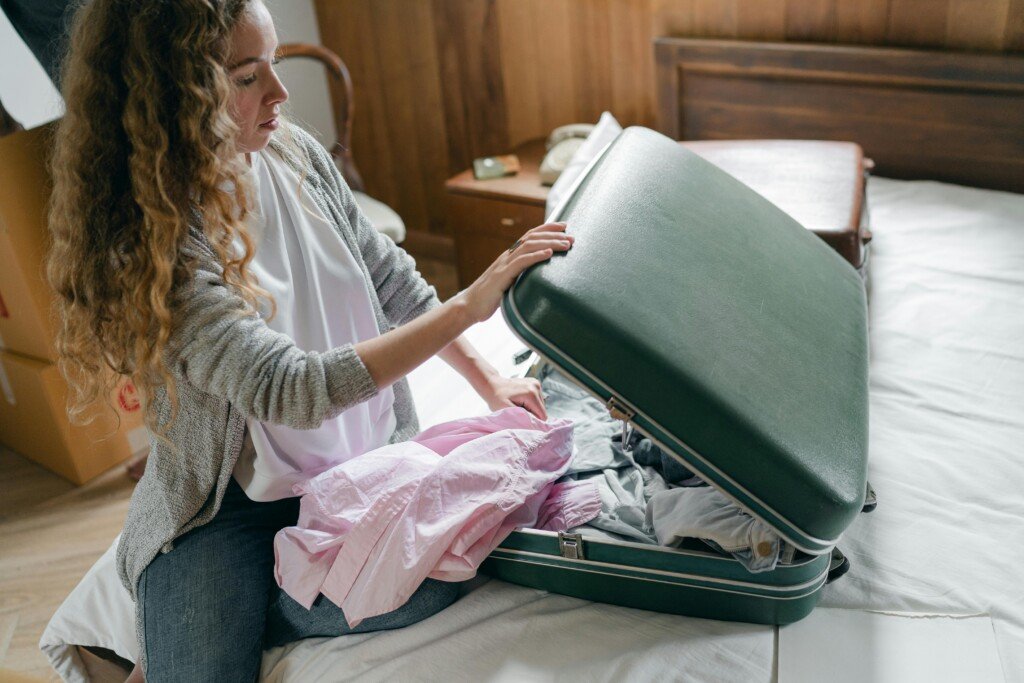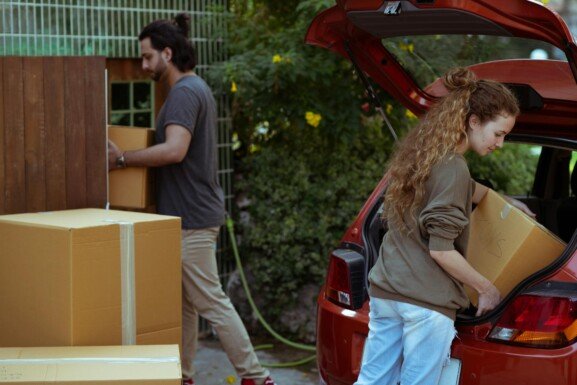Jumping Continents: What Moving Abroad Really Feels Like
The first time I packed up and moving abroad, I honestly thought I was hot stuff. I’d done the whole “international traveler” bit before, hung out abroad for a few months here and there—so naturally, I figured I’d nailed the whole moving thing already. Ha. Turns out, chucking your job, your apartment, your favorite taco spot, and every last friend into the rearview, and then trying to build it all from scratch on a new continent? That’s a totally different beast.
And here’s the kicker—traveling abroad for a few weeks is one thing, but living abroad long-term is a whole other universe.
It’s Not Just Packing a Suitcase

Here’s the thing—moving continents isn’t just, “Oh, let me fold up my clothes and hop on a plane.” Nah, it’s more like jumping off a cliff and hoping you packed a parachute. Whole new world, dude. The culture, the food, even how you cross the street—sometimes it’s all upside down. If you’re even halfway serious about doing this, you gotta think way past the Instagram shots and start getting real about what you’re signing up for.
If you’re wondering what to expect when moving overseas, it’s this: everything you thought you knew about daily life gets rewritten.
The Brutal Distance Factor
So, let’s talk about distance for a sec. You don’t really get it until you’ve lived it. I’m not talking “two hours to Grandma’s house” far; I mean, “three flights and a layover in Istanbul” far. There’s no, “Hey, I’ll pop home for the weekend.” You want to see your family? Hope you like video calls at 3 a.m. because time zones are brutal. You end up missing birthdays, weddings, random Tuesday catch-ups—stuff that sounds small until you’re not there.
The biggest question I had to ask myself was: how do you deal with missing family when you live abroad? Truth is, you don’t. You just adjust.
The Hidden Costs No One Tells You About
And the money, oh my god, the money. Everybody thinks, “I just need enough for a flight and a few weeks’ rent.” Think again. It’s death by a thousand cuts—visa fees, random deposits, shipping costs, adapters for your laptop, a new rice cooker because yours blew up on the weird voltage.
When I went from North America to Southeast Asia, I thought I’d planned everything down to the penny. Wrong. The flight was a small fortune, and shipping my sad little box of ‘essentials’ somehow cost more than the ticket.
So yeah, how much does it really cost to move overseas? Way more than you think.
Culture Shock Hits Different
Then there’s the culture shock. Moving across a city is one thing; moving across a continent? Welcome to upside-down land. Suddenly, the way you say hello is weird, lining up at the store is a contact sport, and negotiating rent is like starring in your own personal episode of Survivor.
I tried not to be that cliché, judging everything. Instead, I just watched—sat in cafés, rode the bus, creeped on people at the market (in a non-creepy way, promise). You pick up way more than any “How to Live Abroad” book could ever teach you.
And trust me, if you’re asking how to handle culture shock abroad, the answer is: observe first, adapt later, complain never.
Paperwork, Visas & Bureaucracy Nightmares
Oh, and the paperwork? Absolute nightmare. Visa stuff will eat your soul. You’ll need a stack of documents, bank statements, insurance proof, maybe even a medical check or a language test. Some places treat you like a visiting dignitary, others like you’re trying to sneak in with a fake mustache.
If you’re wondering what documents you need to move abroad, the answer is: more than you think, and definitely more than you want to deal with.
Work, Visas & The Digital Nomad Dilemma

Jobs—don’t get me started. If you’re moving for work, awesome, but check that your new boss isn’t gonna ghost you when you need a visa renewed. And if you’re showing up without a gig, do some serious research. Some countries roll out the red carpet for foreign workers, others… not so much.
Digital nomads like to think they’re free spirits, but if you’ve ever asked yourself can I work abroad without a visa? the short answer is: not legally.
The Emotional Rollercoaster
Last thing—nobody talks enough about the emotional rollercoaster. The first few months? It’s a wild combo of “wow, this is amazing” and “why am I crying in the grocery store?” Everything’s new—the food, the smells, the way the bus works. Sometimes you’re on top of the world. Other times, you’re mainlining instant noodles and doomscrolling your friends’ posts from home.
If you’ve ever Googled how to deal with homesickness abroad, you already know the truth: you don’t “fix” it—you just ride the waves.
So, Should You Do It?
Anyway, if you’re thinking about making the big leap—strap in. It’ll mess with your head, drain your wallet, and change you in ways you don’t expect. But hey, you’ll have one hell of a story to tell at the end of it.If you’re looking for support with your move, Outplore connects you with international moving services, real estate experts abroad, and other helpful relocation services to make the transition smoother.
FAQ: Moving Abroad
Q1: What’s the hardest part about moving abroad?
Honestly? Depends who you ask. For me it was the paperwork, for a friend it was homesickness, and another buddy nearly quit because of culture shock at the supermarket. So… it’s not one universal “hardest part,” it’s more like a combo meal of all three.
Q2: How much money should I save before I leave?
People will tell you 3–6 months of savings, which is true, but here’s the thing—there are always sneaky costs nobody warns you about. Deposits, visa fees, even something random like paying for new appliances because your old ones don’t work with the voltage. If you think you’ve saved enough, add more.
Q3: Do I really need to have a job before I move?
If you can get one, yes, life will be a thousand times easier. Visa issues, rent approval, everything. But I know plenty of people who winged it without a job. If you’re going that route, at least check if the country has a freelancer or digital nomad visa. Otherwise, you’ll spend your first months stressing instead of settling in.
Q4: How long does culture shock stick around?
It’s not the same for everyone. Some people adjust in a couple of months, others take longer. I’d say the rough part usually lasts 3–6 months, but it gets easier once you start building routines, making local friends, and stop comparing every little thing to “back home.”
Q5: How does Outplore fit into all this?
Outplore is basically the middleman you wish you had when moving. Instead of Googling 50 different movers, agents, or random services, they connect you with people who actually know what they’re doing. It won’t magically solve homesickness, but it can save you a ton of stress.



